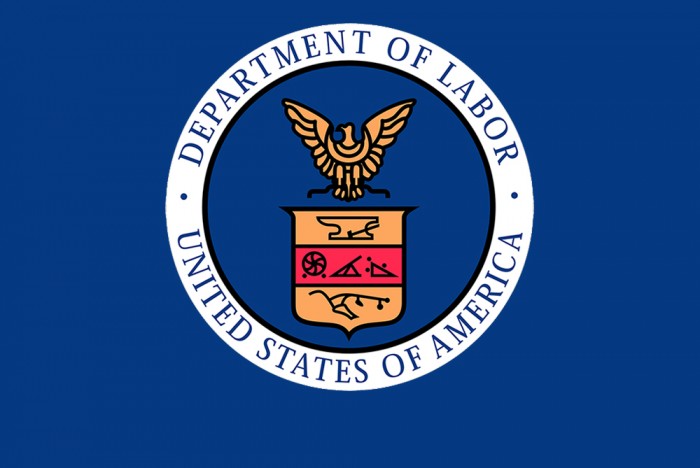Today, the Centers for Medicare and Medicaid Services (CMS) distributed a press release that summarizes their recent activities and actions in response to the Coronavirus Disease 2019 (COVID-19), as part of the ongoing White House Task Force efforts.
UPDATED: Providers Should Proactively Track COVID-19 Expenses
Usage of Safe Passage Letter
As a result of the “shelter at home” announcements, some counties are experiencing authorities under order to restrict travel. For those organizations that are in these lockdown counties (and others), and need to implement emergency procedures regarding their critical health care workers, please feel free to use this safe passage letter template. This was developed by one of our member agencies and was reviewed by their attorneys. We hope this is helpful to your emergency efforts.
ANCOR also provided these templates for DSPs:
Work with leadership in your organization to customize these templates for documents that give credibility to your claims that your work is essential if you live somewhere that has ordered a “Stay Home” or “Shelter in Place” ordinance.
General Assembly Approves $50 Million for Medical Supplies
Wolf Administration Submits Waiver for Greater Flexibility in Medicaid, CHIP Programs
DHS Update from March 25 Stakeholder Call
Please find an updated stakeholder message regarding DHS’ actions in response to the COVID-19 crisis. This message contains the information shared by Secretary Miller on the March 25 stakeholder call. Please know that the situation remains fluid and responses will continue to evolve; the most up to date information is available on the DHS website. Thank you for your partnership and for all you are doing to serve Pennsylvanians during this time.
PA Lawmakers Approve Legislation To Help Schools Operate Through And After COVID-19 Crisis
By Chris Comisac
Bureau Chief
Capitolwire
HARRISBURG (March 25) – The state House and Senate worked through the day Wednesday to send several bills to the Governor seeking to implement some temporary changes to various significant areas of life in Pennsylvania now being impacted by the COVID-19 crisis.
A change to state election law, primarily to delay the April 28 primary election until June 2 (but including a few other changes as well) was adopted by both chambers today, as well as changes to state Unemployment Compensation law and the Pennsylvania tax code – CLICK HERE for more about those changes.
But probably the most significant change for much of the state’s residents – other than being urged not to leave their homes for any reason, other than “life-sustaining” ones – has been the closing of Pennsylvania’s school, which are not set to reopen until April 6 at the earliest – something that will be entirely dependent on the progress made to stem the spread of COVID-19.
In an attempt to respond to issues that have arisen due to the extended closure of schools, lawmakers on Wednesday sent to Gov. Tom Wolf Senate Bill 751, which contains a host of temporary changes to Pennsylvania’s Public School Code.
“This bill will reassure our public school districts that the educational system will be preserved,” Rep. Curt Sonney, R-Erie, majority chairman of the House Education Committee, told his colleagues before the House voted unanimously to approve the measure.
“I believe with the reassurances out of the federal government and the passage of Senate Bill 751, our districts should now have the reassurances that they need so they can move forward with plans to once again get our teachers teaching and get our students learning,” said Sonney.
In the Senate, while noting his support for SB751, Senate Education Committee Minority Chairman Sen. Andy Dinniman, D-Chester, said there are large portions of the state who are lacking the resources needed to provide “the continuity of education for each and every student” while schools are closed, something he said lawmakers will have to address, particularly if the school year is delayed further or canceled entirely.
“We seek a return to normalcy, and yet we have a duty to press forward and deal with the issues at hand,” said Senate Education Committee Majority Chairman Sen. Wayne Langerholc, R-Cambria.
“This bill will serve as a template as we continue to navigate uncharted waters,” Langerholc said. “We don’t know when our students will return to school, but we do know that this bill will help ease that transition back, and provide all available resources to ensure that our students succeed.”
In addition to the bill’s original purpose – to revise the state’s existing educator evaluation system – Senate Bill 751 contains numerous changes to state education rules, solely for the current 2019-20 school year, in response to the statewide school closure in response to the COVID-19 virus crisis.
Though closures have already been implemented as part of Gov. Tom Wolf’s COVID-19 disaster declaration, SB751 authorizes the state Education Secretary to order the closure of all school entities until the threat to health and safety caused by COVID-19 has ended, and it waives the requirement that school entities be open for at least 180 days of instruction, with that waiver to also apply to home education bodies and nonpublic schools if their governing bodies decide to close them.
Additionally, the Secretary is allowed to increase the number of flexible instructional days school can implement, waiving the timeline to apply for those days. Also eligible for waivers by the Secretary are career and technical education program hours, the use of performance data in professional employee evaluation systems, prekindergarten instruction hours, and the 12-week student teacher preparation program requirement.
All school entity employees are held harmless by SB751, ensuring than anyone employed as of March 13, 2020, will receive no more or less compensation than they would otherwise have received from the school entity had the COVID-19 crisis not occurred. For those employees who have already been furloughed, the school entity would need to bring those employees back and keep paying them. If any of those employees had already applied for and received unemployment benefits, those payments would be considered no-fault overpayments and further benefit would stop. Employees would likewise be kept whole with regard to their retirement benefits. Plus, for active educators, their current continuing professional education compliance period would be extended by one year.
A “school entity” is defined as any school district, intermediate unit, area career and technical school, charter school, cyber charter school or regional charter school a child attends in order to fulfill the compulsory attendance requirements of the state’s Public School Code.
Also required of those school entities:
- Provide notice to all parents of special education students of the school entity’s plan for ensuring a free and appropriate public education for special education students;
- Provide cleaning staff with appropriate cleaning materials and protective clothing and gear as recommended by the Centers for Disease Control and Prevention;
- A good faith effort made to develop a plan – with guidance and assistance to be offered by the state Education Department and local intermediate units – to offer continuity of education using alternative means during the closure period, with that plan to be submitted to the state Education Department for posting on its website; and
- Continue payment to intermediate units and career and technical centers, as well as approved private schools and private residential rehabilitative institutions where public schools have placed students.
SB751 also states that no school entity will see any loss in school subsidies or reimbursements from the Commonwealth as a result of actions taken by the Secretary pursuant to this section. That also applies to charter schools, which under the bills, will not receive more or less per-student tuition payments then they otherwise would have been entitled if the COVID-19 crisis had not occurred, with tuition payments based upon the students enrolled as of the initial date of the ordered school closure.
To address potential school student transportation issues down the road, the legislation allows each school entity to renegotiate their contracts for school bus transportation services to ensure contracted personnel and fixed costs, including administration and equipment, are maintained during the period of school closure. The school entities will be eligible to receive reimbursement from the state as if the COVID-19 crisis had not occurred (though, as noted during the recent state budget hearings, reimbursement might start to get dicey, particularly if the state’s revenues take a substantial downturn due to the COVID-19 crisis).
And while it’s already been announced that the state is canceling standardized test for the school year, but the legislation requires the Education Secretary to apply to the federal government – which Secretary Pedro Rivera has said he intends to do – for the necessary waivers to permit the cancellation of those assessments. The bill cancels standardized tests for home education students, along with evaluations of home education programs.
Lastly, acknowledging the impact of the COVID-19 crisis upon school operations, SB751 allows a school entity to seek a waiver from the Education Secretary, in a form and manner prescribed by the Secretary, of any provision of the state’s Public School Code, regulation of the State Board of Education or standards of the Department directly related to the school entity’s staffing needs, its instructional program or operations, with the Secretary given 30 days to approve or disapprove the request, with no option to appeal the Secretary’s decision.
Questions, please contact Jack Phillips.
















